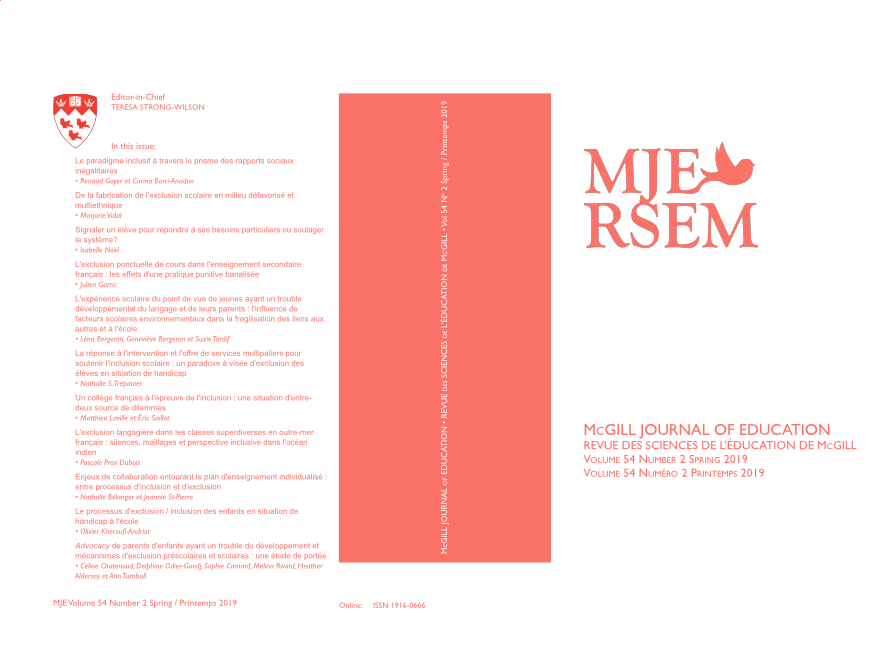LA RÉPONSE À L’INTERVENTION ET L’OFFRE DE SERVICES MULTIPALIERS POUR SOUTENIR L’INCLUSION SCOLAIRE : UN PARADOXE À VISÉE D’EXCLUSION DES ÉLÈVES EN SITUATION DE HANDICAP
Keywords:
inclusion, Multi-Tier Services Systems of Support, Response to Intervention, exclusion (process), students with disabilitiesAbstract
À partir d’un recensement général des écrits, ce texte offre une analyse critique de l’application actuelle des programmes de réponse à l’intervention (RAI) combinés à une offre de services multipaliers (SMP) en contexte d’inclusion scolaire. Cinq dimensions paradoxales sont ainsi présentées. Il s’agit de l’éligibilité des élèves à recevoir des services professionnels, l’identification des élèves ayant des besoins particuliers, les rôles des enseignants et de l’éducation spéciale, les interventions fondées sur les données probantes et les programmes standardisés ainsi que l’utilisation limitée de l’approche par résolution de problèmes (APRP). En bref, nous expliquerons comment la RAI et l’offre de SMP actuelles peuvent contribuer à l’exclusion des élèves qui rencontrent des situations de handicap pédagogiques (SHP) dans leur parcours scolaire.
RESPONSE TO INTERVENTION AND MULTI-TIER SYSTEMS OF SUPPORT TO PROMOTE INCLUSION: A PARADOX FOR THE EXCLUSION OF STUDENTS WITH DISABILITIES
Based on a scoping review, this paper provides a critical analysis on how the current application of Response to Intervention (RTI) programs and Multi-Tier Systems of Support (MTSS) interfere with inclusive education. Five paradoxical dimensions are thus presented. These include student eligibility for professional services, identification of students with special needs, roles of teachers and of special education, evidence-based interventions and standardized programs, and a limited use of the problem-solving approach. In short, we explain how RTI and MTSS can actually impede the inclusion of students with disabilities.



